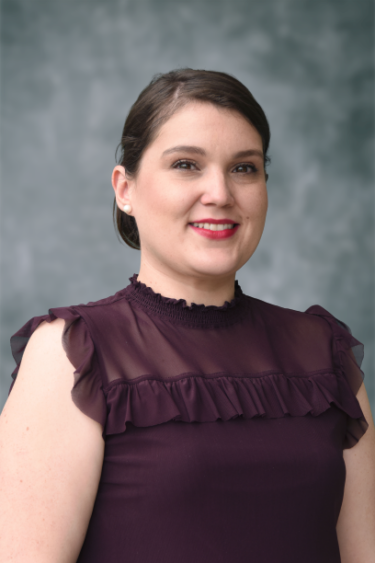 Priscilla Carmiol-Rodriguez is a PhD in Nursing Science student and a de Tornyay Center for Healthy Aging Pre-doctoral Scholar. Carmiol-Rodriguez’s research interests include sleep and health inequities.
Priscilla Carmiol-Rodriguez is a PhD in Nursing Science student and a de Tornyay Center for Healthy Aging Pre-doctoral Scholar. Carmiol-Rodriguez’s research interests include sleep and health inequities.
Why did you choose nursing?
I wanted to be in a profession or discipline working more closely with people throughout the entire lifespan. Nursing has broadened my perspective of what this profession can do for people’s health and well-being. Particularly, I’m interested in the scope nursing has on inequities. In my undergrad program, health inequities were central to our curriculum. It’s crucial for us to be aware of it and how it impacts health outcomes.
What areas of research are you interested in?
After the COVID lockdown, I started seeing many people with sleep problems. I was also affected by that. I began to look for information on what we could do to improve the situation. I started learning about the health inequities related to sleep health. I saw how this affected people of all ages, particularly older adults, and how it was detrimental to their health.
Where did you see these sleep problems? Were you seeing these sleep problems initially as a practicing nurse or somewhere else?
In people of all ages, teenagers, younger adults, and older adults. It affected a lot of people. Sometimes we consider poor sleep part of our daily life, and that it’s normal to have these kinds of problems. But it’s not.
When I was a practicing nurse, I started seeing people — because I worked in a hospital setting — that because of the changes in the environment, it was impacting their health. They might complain about, “I cannot sleep”, “I’m tired all day”, or “I’m sleeping during the day because over the night I cannot sleep because I’m not in my home”, or because of the all the noise that comes with the hospital.
Then I started seeing my co-workers, friends, and people who talk about how they’re facing the lockdown, say, I cannot sleep, or I sleep, and I don’t rest enough. During the lockdown, it was more evident how this impacts people.
You mentioned health inequities and sleep hygiene. What kind of inequities exist?
Lower-income people have a higher risk of insomnia, and sometimes if you don’t have money to pay for health care, you don’t have access to sleep healthcare to help you. Maybe you have other priorities, where to live, what to eat, so you don’t worry about your sleep.
What made you realize that you wanted to transition into doing research?
I have always been interested in research. I did some higher education research. However, it was important to me to do nursing research. Moreover, I want to be able to help other younger nursing generations to become nurse researchers. If you don’t research, you cannot teach others to do it. You have to be hands-on.
Have you done any healthy aging work in the past?
I worked in healthcare simulation for about ten years. I spent most of my professional career as an educator. So I did not work directly in healthy aging, but I used to work with a gerontological nursing course. We tried to develop educational interventions for students so they could provide education to older people. The main objective was to be aware of the stereotypes or biases you have when working with older adults because most of them are not right. We were trying for them to be more aware of that.
Additionally, I worked closely with older adults, facilitating a simulated participant training program for older adults. They were vital part of members of the simulation team back in my previous work, as they served as consultants in the simulation design and actively participated in the simulation-based learning events. Their contribution to our student’s education is so valuable.
What interests you about healthy aging?
As we age and our life expectancy grows, we should be able to be autonomous and have the best life that we can have, no matter how old we are. It’s not only for older people, but for everyone, because everyone is aging. Healthy aging, for me, is a framework to help our patients or communities to have better lives across their lifespan
I am interested in sleep because if we have better sleep quality, we will have a better quality of life. We will have more energy. Our cognitive function is going to be better. Therefore, we will have more possibilities to engage with our communities, and reach our individual goals as we age.